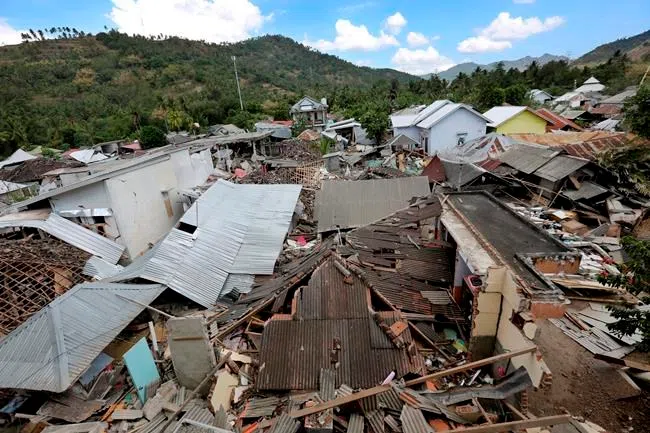
Man saved from quake-flattened mosque on Indonesia island
LADING-LADING, Indonesia — Soldiers have pulled a man alive from the rubble of a large mosque flattened by an earthquake on the Indonesian island of Lombok, while thousands of homeless villagers waited for aid Tuesday and stranded tourists camped at beaches and in the lobbies of damaged hotels.
The north of Lombok has been devastated by the magnitude 7.0 quake that struck Sunday night, killing at least 105 people, seriously injuring more than 230 and destroying thousands of buildings. Two days after the quake, rescuers were still struggling to reach all the affected areas and authorities expected the death toll to rise.
Disaster officials have not said how many people they believe are buried beneath the ruins of the Jabal Nur mosque in Lading-Lading but the village head, Budhiawan, said about 30 based on unclaimed belongings left outside.
Video shot on Monday by a soldier showed rescuers shouting “Thank God” as a man was pulled from a space under the mosque’s flattened roof and then staggered away from the ruins supported by soldiers.
